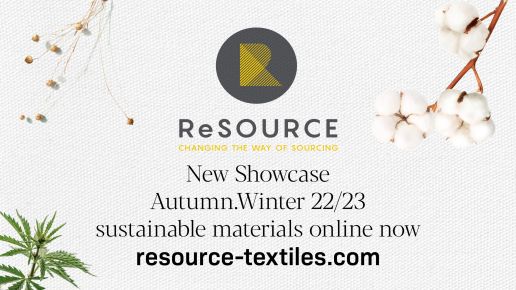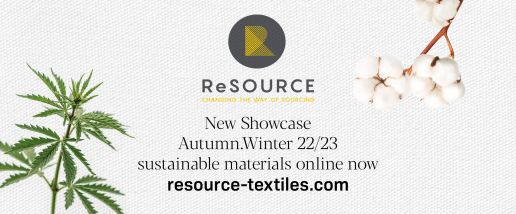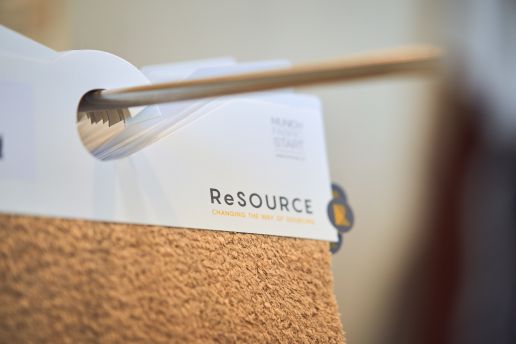GOTS
Now Launching at ReSOURCE
Over the past few months, we have been focused on growing our expertise and concentration of sustainable materials and sourcing solutions at our shows. The rebranded ReSOURCE area launched at MUNICH FABRIC START on 31 August – 2 September 2021 and successfully drew crowds to the new Autumn.Winter 22/23 showcase. Engaging and full of life, our welcomed guests discovered the bright and modern presentation, eager to source the latest in sustainable textile design and manufacturing.
Now, we are very pleased to announce the launch of the new ReSOURCE homepage www.resource-textiles.com. Get ready to SOURCE SUSTAINABLE WITH ReSOURCE!
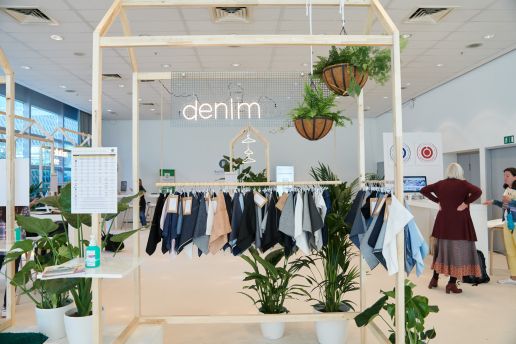
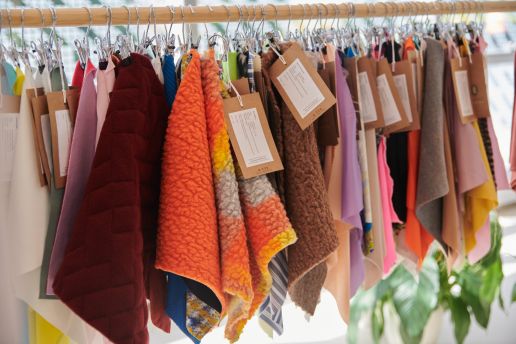
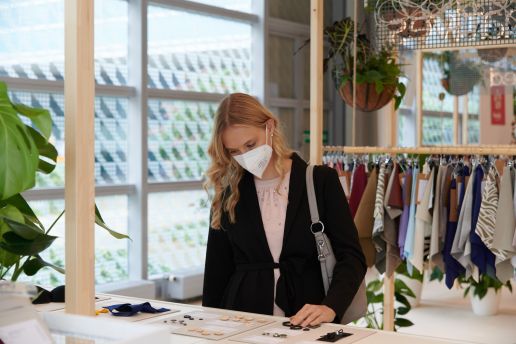
We have reached the next phase as part of our ongoing commitment to improve the accessibility and functionality of fair fashion sourcing, with the launch new ReSOURCE homepage. The website massively compliments the physical sustainable showcase of fabrics and accessories at our shows and succeeds as an independent tool for fashion professionals to source sustainable materials online with ease. But it can also be used by end consumers as a unique tool for information and inspiration.
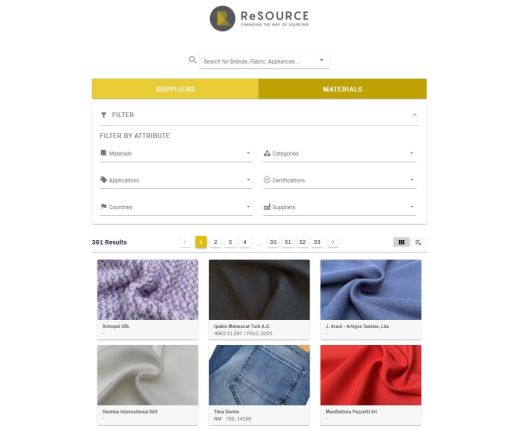
START SOURCING SUSTAINABLE MATERIALS
At the physical showcase, we proudly presented over 400 sustainable articles and now with the launch of the new ReSOURCE website, we are able to connect buyers, product managers and sourcing specialists with over 600 materials online. With a new and improved materials search function, textile professionals are invited to browse, filter and use our keyword search to find the perfect material match to suit their needs. Discover it for yourself!
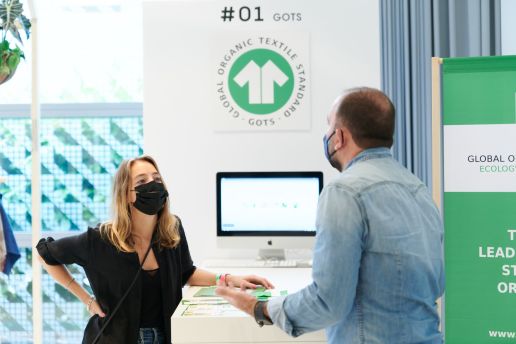
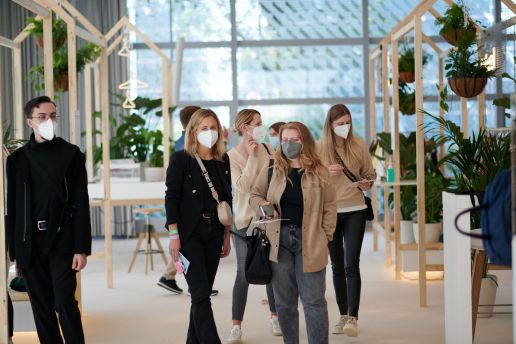
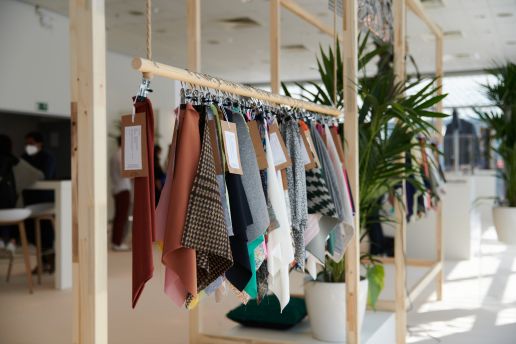
LEARN ABOUT CERTIFICATIONS
There are countless certificates for environmentally conscious fabrics and accessories. Textile certification is the means of guaranteeing the origin, specifications, level of quality or conformity of a product according to production, social and environmental standards. It is important to understand which certifications are relevant to you and learn what they stand for.
FIND YOUR PERFECT SUPPLIER MATCH
With improved search functions and complete supplier profiles available online, ReSOURCE optimises the way fashion brands and industry suppliers work together. Browse our supplier list to find manufacturers and industry partners who suit your needs. Read their profiles and discover what will make your partnership a great fit, from there you can directly contact the supplier and make your requests.
Sustainable Standards Guaranteed at ReSOURCE
With increasing importance placed on sustainability, the need to guarantee truly sustainable standards is in greater demand by buyers and brands. Ahead of their showcase at ReSOURCE at the next edition of MUNICH FABRIC START, we interviewed representatives Heike Hess of the International Association of Natural Textiles (IVN) and Franziska Dormann of Global Organic Textile Standard (GOTS).
Briefly, IVN awards two quality seals for ecologically produced products: NATURTEXTIL and NATURLEDER. For both seals, the association has defined parameters that have become a standard in the industry. The association is co-owner of GOTS, the worldwide standard for the production of sustainable textiles on an industrial scale.

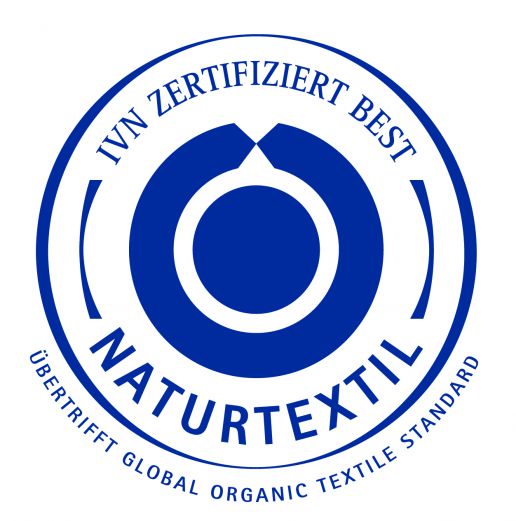
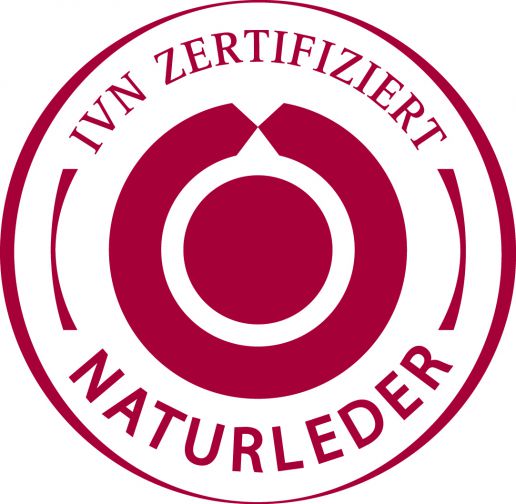
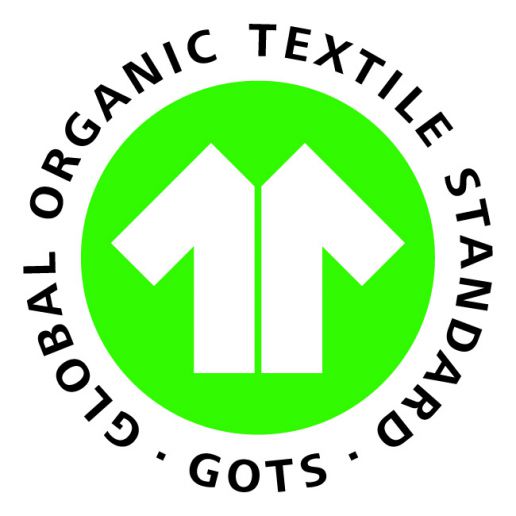
What is the most frequently asked question at the beginning of a consultation?
GOTS: Often it begins with a general introduction to the Global Organic Textile Standard, i.e. What is covered by the standard? How is this ensured? By reviewing the strict social and environmental criteria throughout the entire textile supply chain – from the fields to the wardrobe – GOTS guarantees safety and transparency for the consumer. The independent certification ensures credibility compared to mere self-explanatory statements.
IVN: Most visitors ask us for certifications and seals. How to get certified, which fabrics and accessories must be sourced to reach IVN BEST or GOTS requirements or how do our seals differ from others founds in ReSOURCE, register here.
What changes do you want brands to make in the next 5 – 10 years to bring about and anchor sustainable aspects of the textile industry?
GOTS: I think most people have recognized the importance and urgency of this because no one can fly under the radar for long. Sustainability interests those who have to justify themselves the most. For us, these are the brands that sell. Everyone involved is interested, the question is which actions follow? In industry, the spectrum ranges from greenwashing to genuinely practiced sustainability. Consumers range from lip service to showing a real willingness to spend more on sustainable products.
IVN: Many buyers, especially brands, are looking for certified fabrics. The selection of certified fabrics made with natural fibres in ReSOURCE is quite large, but for synthetic and regenerated fibres there is a lack of products that have been awarded truly sustainable seals. I would like to see more interest from the brands here, which would result in a stronger commitment on the part of the fabric suppliers.


How has the brands’ approach to research and purchasing changed over the last seasons?
GOTS: The trade fairs, as well as specific enquiries by e-mail, have resulted in more and more brands wanting to find out which suppliers are already GOTS-certified. Here I refer to the public database with almost 6,000 certified companies. Many companies that are interested in GOTS want to continue working with their existing suppliers and therefore jointly go the way of gaining certification of their entire supply chain.
IVN: You can clearly see that the topic of sustainability is becoming increasingly important for brands. Visitors at ReSOURCE are better prepared and ask more concrete questions. Many are looking for specific products and have clear expectations about what a fabric should be like. The typical length of time brands exhibit in the ReSOURCE area has definitely increased. More and more buyers who do not explicitly belong to sustainable companies are also showing interest in the products exhibited at ReSOURCE.
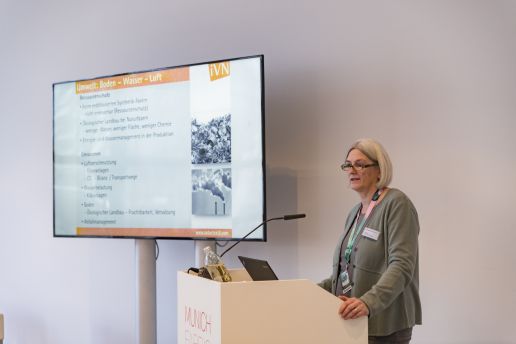
What are the specific challenges facing a future-oriented fashion industry?
IVN: The challenges vary depending on the size and orientation of the fashion companies. Smaller brands – especially in the sustainable segment – have problems finding certified suppliers who also supply small quantities. Larger companies use many different materials and accordingly many different suppliers. It is difficult to have an overview of the entire supply chain up to your own company, especially if you attach importance to a certain level of sustainability held by suppliers and sub-suppliers. It is still a challenge to reconcile certification and sustainability with the profitability of products. For particularly fashionable brands, it is still challenging to find exclusive or unique fabrics and additionals in sustainable qualities. There are certainly some other challenges, but overall it is more important that today means making sustainable fashion easier and more profitable than it was a few seasons ago.





